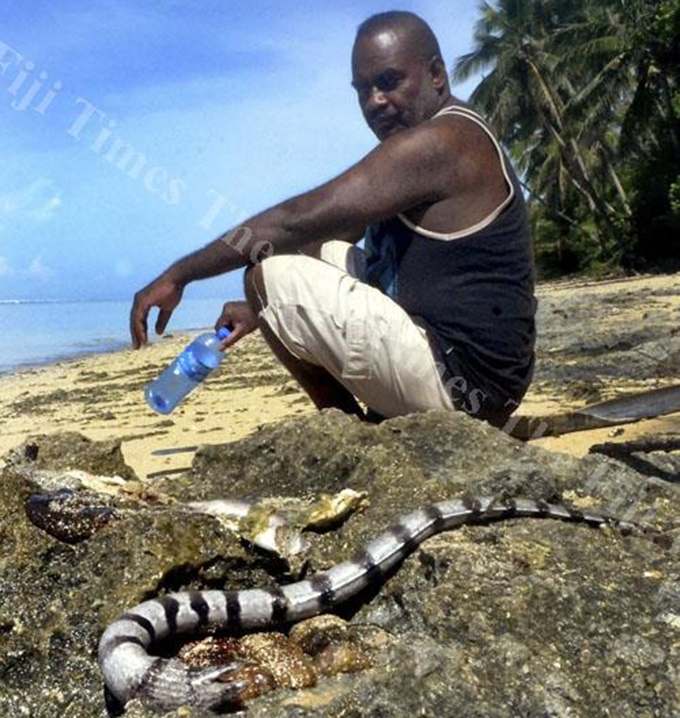
By Sikeli Qounadovu in Komave, Viti Levu, Fiji
What used to be a 30-minute walk, even up to an hour, to the best fishing spot for people of Komave in Nadroga turned out to be a walk just outside their doorsteps this week.
No, they didn’t need a fishing line, a net or a spear, but just a sack to fill up the hundreds of fish that washed up on their shoreline.
Komave district representative Tevita Batikodikodi says this has been the scene for them over the past two weeks.
“But this week it has been the worst because we woke up on Monday with thousands of fish on the beach — there were those that were still alive and those that were dead.
“For those that were alive, we have cooked and consumed them.”
Litia Bolakoto, 63, says since being married into the village, near south Korolevu, this was the first time for her to witness something like this in 44 years.
“We were shocked and surprised,” she says.
A few reasons
Adjunct scientist and marine expert Dr Sangeeta Mangubhai says there were a few reasons that could cause fish to wash ashore.
“If you have fish killed it could either be because of pollution or because there isn’t enough oxygen in the water. It can be anything like air pollution or other animals in there that are sucking up the air in there.”
With Fiji’s current temperature experienced at a maximum 33 deg C, Dr Mangubhai says not all fish could be killed because of this
“When the coral bleaches and dies, it doesn’t necessarily mean that the fish dies. It depends on how much coral die, and if a lot of coral die, the fish that eat the coral die because of less food.
“Also the impact on fish is different, so you cannot say because of coral bleaching the fish die. It’s not like that at all.”
Reef Explorer director Dr Victor Bonito says Fiji was in need of cloudy weather to cool off the already overheated marine eco-system.
He says the sea water temperature had risen to as high as 36 deg.
Hot water
“I would say the dead fish would be a result of the hot water being experienced at many of the sites in Votua, Votualailai, Namada,” Dr Bonito said.
“Temperatures have really spiked from the end of January and this weekend it has really gone high. It has never gone cool at night because we have some hot water that has moved around Fiji and it has been above 30 degrees at night since the weekend.”
The Fisheries Department is currently conducting tests on fish that washed ashore along the Coral Coast to determine the cause of death.
Meanwhile, the Fiji Meteorological Service has forecast Fiji’s temperatures to rise as high as 33 deg in the next few days.
Vanuatu heat wave suspected cause for dead fish
—














































